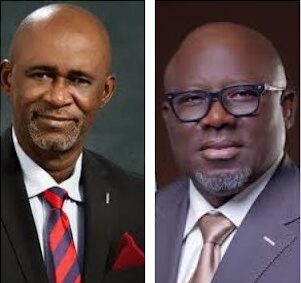Delta State Governor, Sheriff Oborevwori, has filed a Notice of Appeal at the Supreme Court against the judgment of the Court of Appeal, Abuja, which ordered the Delta State Governorship Election Petition Tribunal to hear, on merit, the petition filed by the candidate of the Labour Party (LP) in the last election, Ken Pela, challenging his election as governor.
Oborevwori, in the Notice of Appeal filed by his lead counsel, Mr. Damian Dodo (SAN), listed three grounds upon which he would argue that the appellate court erred in making an order for a retrial in the Labour Party’s petition.
A three-man panel of the Court of Appeal led by Justice M L Shuaibu had in a judgment delivered on August 31, faulted the decision of the tribunal to dismiss the case of the petitioners on claims that the petition was abandoned because the petitioners’ application for pre-hearing session was not properly filed.
Subsequently, the appellate court ordered that the petition be taken back to the tribunal for hearing within the time stipulated in the Electoral Act.
Dissatisfied with the decision of the Court of Appeal, the governor has now filed a Notice of Appeal at the Supreme Court where he is seeking an order of the court allowing the appeal.
He also asked the court to set aside the judgment of the Appeal Court delivered on August 31, 2023, and affirmed the decision of the tribunal delivered on July 6, 2023.
In ground one of the Notice of Appeal, Oborevwori stated that “the lower court erred in law when, despite its findings that the respondents’ application for issuance of pre-hearing notice filed on May 19, 2023 was pre-mature, having been filed before the close of pleadings, and the respondents’ admission that the said application was indeed pre-mature, it proceeded to hold that the procedure adopted by the respondents, albeit wrong, did not matter as issues in contention had been brought to focus, and thereby occasioned a grave miscarriage of justice.”
While observing that Paragraph 18 of the First Schedule to the Electoral Act, 2022 requires a petitioner to apply for the issuance of Pre-Hearing Notice as in Form TF 007 within seven days after the filing and service of the petitioner’s reply or seven days after the filing and service of the respondent’s reply, whichever the case may be, the appellant pointed out that “pleadings” in the instant petition closed with the filing and service of the 1st and 2nd respondents’ reply to the appellants’ reply to the petition on June 9, 2023.
“Prior to the close of pleadings, the 1st and 2nd respondents filed an Application for the Issuance of Pre-Hearing Notice on May 19, 2023.
“On June 5, 2023, when the petition came up for commencement of pre-trial, the 1st and 2nd respondents by their admission, informed the tribunal that the petition was not ripe for pre-hearing as they have only just been served with appellants’ reply to the petition.
“In a bid to cure this defect, the 1st and 2nd respondents filed another application for Issuance of Pre-Hearing Notice on June 21, 2023, 13 days after the close of pleadings.
“The first and second respondents proceeded to orally withdraw their second Application for Issuance of Pre-Hearing Notice on June 24, 2023, while replying to the 2nd and third respondents’ motion on notice seeking the dismissal of the petition for being abandoned.
“The lower court, despite finding that the application for issuance of Pre-Hearing Notice as in Form TF001 was premature, proceeded to set aside the decision of the trial tribunal dismissing the petition.
“Paragraph 18 of the First Schedule is of a unique and sui generis nature, and its provisions are mandatory.
“Failure to comply with the rules as to the procedure therein is fatal to the fate of any petition”, Oborevwori stated.
Similarly, in ground two of the Notice of Appeal, the appellant argued that the lower court below erred in law when having held that pleadings will be deemed to have closed when all the respondents file their respective replies to the petition, it proceeded to allow the appeal, even though the 1st and 2nd respondents’ application was for issuance of Pre-Hearing Notice was pre-mature, having been filed before the close of pleadings.
Oborevwori further submitted in ground three that the, “lower court erred in law when it failed to be bound by the latest decision of the apex court in Maku & Anor v. Sule & Ors (2019) LPELR-58513 (SC); (2022) 3 NWLR (PT. 1817) 231 and proceeded to set aside the trial tribunal’s decision which had followed the said decision of this honourable court.”
In addition, he submitted that by the doctrine of stare decisis, the lower court ought to have followed the decision of the Supreme Court in determining the 1st and 2nd respondents’ appeal before it.



